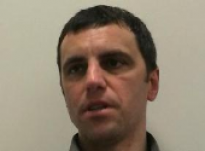Interview 17- HIV

He took time to work out who to disclose to and to make treatment decisions (he currently takes Combivir and efavirenz). He initially suffered mental health side-effects (e.g. trouble sleeping, irritability) but now has few problems with medication.
A gay man born in France who moved to the UK 19 years ago, and is in a long-term relationship. He was diagnosed following a period of poor health.
For more clips from this interview click here.
More about me...
A man with HIV describes how he chooses to trust and use medical advice from his doctor when...
A man with HIV describes how he chooses to trust and use medical advice from his doctor when...
You have to take responsibility. I leave the like the medical expertise… to my doctor in a way, I mean I, I kind of understand how it all works, a little bit but… Usually when I, when I'm, in, in doubt about anything or I, having to make a decision about something, I will ask my doctor's advice. And then I, I will make my own decision based on his advice. But, my God if you start obsessing about, about understand, understanding the minute detail of the medical things… Not only, not only is it extremely complex, but I think that, I found that in the initial months after being diagnosed is that if you… you know so you look things up on the internet and you, there is a danger that you fall… in a way you fall in the wrong hands.
He is grateful his doctor allowed him the time to find out for himself - and decide about - his antiviral treatments for HIV.
He is grateful his doctor allowed him the time to find out for himself - and decide about - his antiviral treatments for HIV.
And when I was diagnosed, the current treatment I am on, which is Combivir and efavirenz was… I think it was… either had only just been fully kind of released or it was still on large scale clinical trial. But up to then, I think, you know that, you kind of you were hearing all these horror stories about, about treatments failing, or treatments with horrendous side effects. Not a very good success rate, even, even back, even in 2000. So you, know it is a complex, it is a difficult decision to make.

